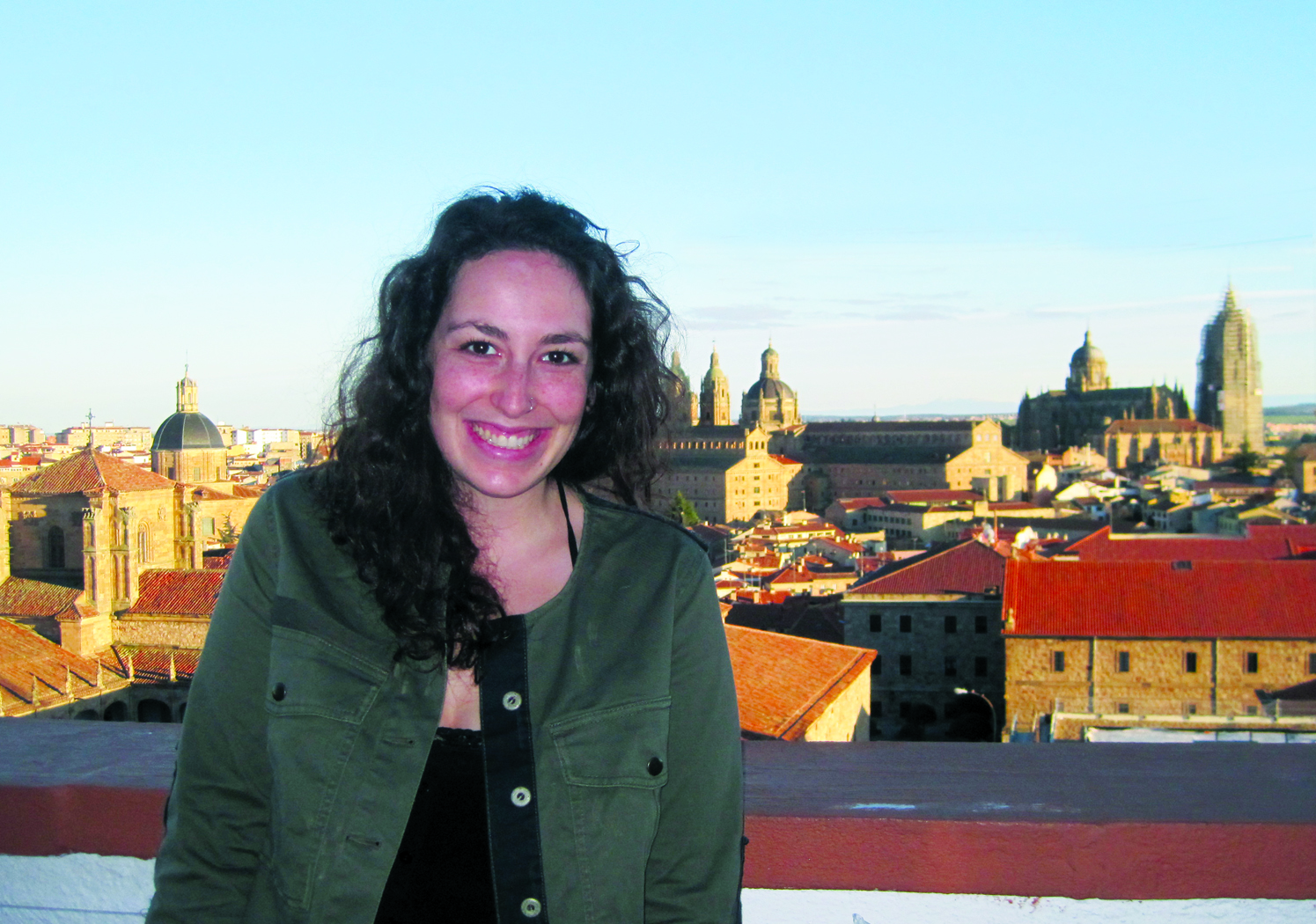
Anya Cohen
Staff Writer
If the Voice staff is on the ball, this newspaper will hit Lowry tables at 9 a.m. EST. While most of you will either be zombie-walking to your next class or putting on your fourth layer of jackets, I will be participating in Spain’s national naptime, otherwise known as “siesta,” also known as God’s gift to college students. The 2 p.m. to 4 p.m. siesta is only one of many things that make up Spain’s unique and rich culture — a culture that I can’t help falling in love with.
As a Spanish major who adores food, language and travel, studying abroad in Salamanca, Spain seemed the obvious choice. And while 14 days in Spain does not a Spaniard make, I’m already beginning to feel at home with the Spanish ways. My closet is slowly but surely beginning to fill up with clothing from Zara, a popular European clothing company. My sleep schedule is finally allowing me to keep up with the nightlife and stay out until 6 a.m. And, for the life of me, I can’t stop calling WiFi “weefee” in toe with the Spanish pronunciation.
My speedy ease into Spanish culture is greatly attributed to the extreme friendliness, openness and patience of the people in Salamanca. Primarily a college town, Salamanca is riddled with twenty-somethings who are eager to meet and learn from each other. Unlike in the United States, where social inhibitions often get the best of us, young Spaniards are quick to introduce themselves to an unfamiliar face. Because my language skills are mediocre at best, I’m always surprised by how tolerant my new acquaintances are with my broken attempts at the language. I’m also surprised by how eager they are to practice their English. Helping my Spanish tremendously is “intercambios,” a popular activity where students studying abroad meet with local students to practice learning each other’s languages. This week I have an intercambio coffee date with a girl who speaks both Spanish and French. Seeing as I’m bringing less to the table, I’ll probably buy the coffee.
Coffee is an unfathomably large part of Spanish culture. As a non-coffee drinker, the most difficult thing for me to get used to thus far has been how frequently people go out for the drink. Every other building is a coffee shop and the Spanish seem to seek out a mid-day coffee with the same tenacity as a Wooster student seeking Mom’s quesadillas on a Saturday night. I’m still struggling to find something that I can drink at the coffee shops, seeing as hot chocolate here is really just melted chocolate in a cup and bares no semblance to a beverage. Luckily, I still have three more months to figure it out. Food is equally as important in Spain. However, unlike coffee, the food has been something that I have been able to enjoy. Tapas, small delicious dishes that you get in a café, are a food that would serve the mouths of Americans very well.
While I’ve been told to never use disclaimers when I talk or write, I’m going to make an exception. I’m sorry if the wording of this article has been a little wonky or if the article has been a bit disjointed. To be honest, writing this has been a pain in the butt since all I’ve been hearing is Spanish; my brain is stuck in this half-Spanish/half-English limbo, and it’s really hard to find the words that I’m looking for. However, even though my language flip-flop has made it tricky to write this abroad insight, I think the fact that I’ve learned that much Spanish in just two weeks is pretty cool. So I guess, as much as I hate this phrase, I think a “sorry I’m not sorry” is in order.
